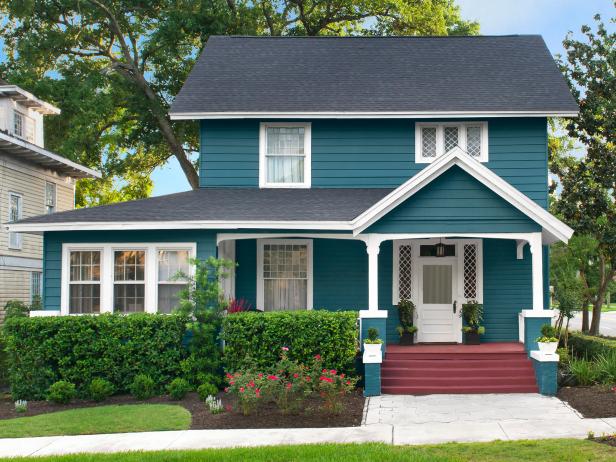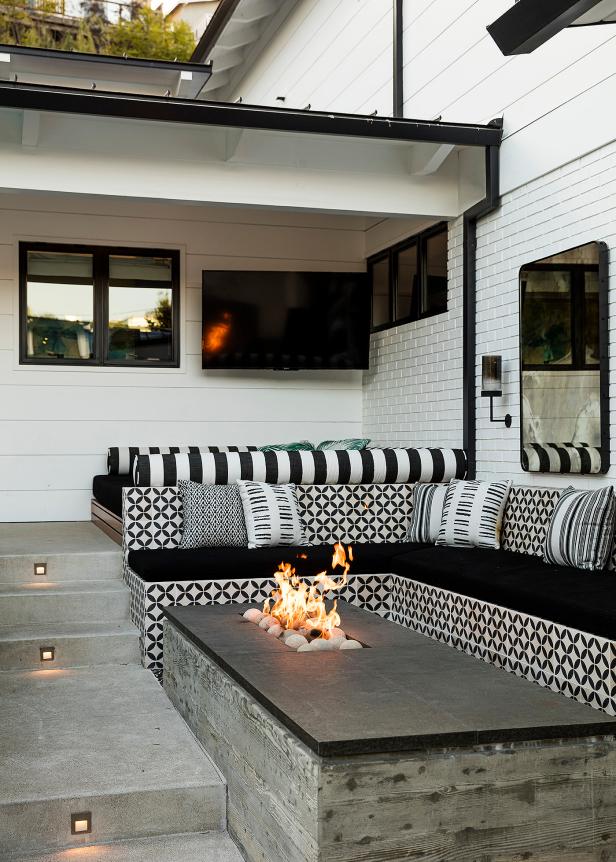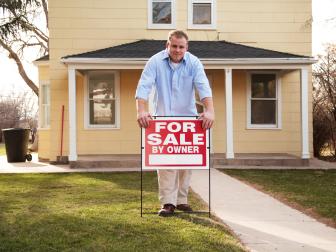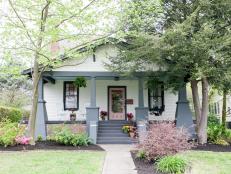How Much Is My House Worth?
Whether you’re looking to sell your home or just want to stay current on its value, here are some tips to help you determine what your home might be worth.

It’s no secret that the housing market had ebbed and flowed over the last decade and the value of your home may have fluctuated along with it. Changes in home costs are due to many uncontrollable factors such as the economy or geographical area. But there are aspects you can control, like home maintenance and upgrades. Curious whether your home’s value has skyrocketed or taken an unfortunate dive? Here are several ways to learn about your home's value.

Agnes Lopez
Free Online Estimates
Free websites including Realtor.com, Zillow.com and Redfin.com offer quick approximations of home values based on analysis of publicly available information, such as tax records. In states where it’s legal to do so, these sites list recent sale prices and satellite photos of nearby homes. If you’re looking to buy a new home, these sites are a good starting point because they can be helpful to map listed properties and compare pricing and attributes.
Tax history and valuation estimates are a good starting point for anyone buying or selling a home, but it’s still important to have a professional assessment to gauge whether the condition of any home meets the expected fair market value. These sites will give you some insight, but don’t price your home for sale, or consider making an offer, without a professional opinion. Worst-case scenario, you’ll price your home too low, or make an offer that’s too high.
Fee-Based Online Appraisals
In a sea of internet-based valuation tools, you may find that websites do offer property reports that you can download for a fee. Be wary, because automated paid services don’t promise any significant value-add to buyers or sellers, despite the promises.
All computer-generated analyses (those lacking human assessment for validity and context) are based on publicly available information. They’re useful if you want to save yourself some time in gathering comps, but they don’t offer a reliably significant perspective above and beyond free online assessments. It's still best to defer to a professional when you need to validate your findings.

Manolo Langis, langoworks.com
Real Estate Comparative Market Analyses
Comparative market analysis reports — or comps — prepared by real estate pros, provide a more accurate assessment of your home's value. “Please, please, please take the values from national websites with a grain of salt,” says Michelle Corsi, Licensed Real Estate Salesperson and Team Lead on the Steve Wrobbel Team at Howard Hanna in Rochester, New York. “It may be a good place to start, but a local agent familiar with your neighborhood will know the true value and understand current market conditions.”
To give you a better idea of the variance in some numbers, she adds “The big websites can be off by up to 20%! Imagine leaving 20% profit on the table, or being 20% overpriced and forced to do multiple reductions and months of showings. Most agents will give you a free, no-obligation, market evaluation.”
For Sale by Owner (FSBO): Pros + Cons
Are you prepared to sell your house by yourself? Set your expectations right. Learn what it will take to be successful, and know when the process might not be right for you.
If you have a buyer’s agent and are looking to buy a home, they’ll help you determine if the house you want to buy is priced fairly in its market. They use data including relevant offers and recent sale prices for comparable properties in your neighborhood to guide you towards your offer price. They’ll make efforts to track down homes that are most similar to the house you want to buy in your specific area so that, even in a seller’s market, you’ll have a chance at making a respectable offer without going too high.
A seller’s agent looks at comps in a similar way. They want to know what recent home sales in the surrounding neighborhood have been so that they can determine a fair market, but advantageous price for the seller.
Comps are not valuable for securing a loan or line of credit; in fact, some lenders consider them more anecdotal. Some states allow you to ask a real estate agent to prepare a report for a fee, others don’t. In general, agents generally don’t like to give away their market expertise without the promise of a commission, usually in the form of a contract with the home buyer or seller.

Moya McAllister
Home Appraisals
You’ll need to undergo a full professional appraisal if you’re applying for a loan. If you made a lot of improvements to a home you’re selling, you might benefit from an appraisal, too. Banks always prefer this assessment and determine that it’s the most precise evaluation of your home’s worth.
When you’re buying a home, the bank reviews the home you’re purchasing with a keen eye to ensure that the purchase price doesn’t exceed its actual value. “Appraisals go into a lot more detail than a real estate agent doing a comparative market analysis,” says Eric Schwartz, MAI, SRA, a professional appraiser of commercial and residential property in Annapolis, Maryland. “For example, we measure the house to estimate the square footage, whereas real estate agents typically take it from the tax rolls.”
Schwartz recommends selecting an appraiser with these qualifications:
- state certification in addition to a license;
- at least three years’ experience (the first two years on the job are as a trainee);
- membership in a voluntary professional organization, such as the Appraisal Institute (which Schwartz belongs to), and attainment of credentials offered by that organization.
The cost of an appraisal can vary, but it's the best way to confirm a home's value. Appraisals of typical subdivision houses will run around $375, Schwartz says, but you can expect a larger fee if your house has special attributes that require extra time and/or research into comparable prices (like large acreage or the aforementioned improvements). “The largest fee I’ve ever charged for a house appraisal was $2,500 and that was 15 or 20 years ago,” Schwartz says. “The house was 11,000 square feet, U-shaped, had an indoor swimming pool ... I had to spend weeks looking for what might be considered comparable properties.”
Keep in mind that a good appraiser isn’t in a position to profit from the appraisal, and his or her fee will be based purely on time and expertise. “We try to give an accurate, objective picture,” Schwartz says. “I get a flat fee, not a commission.”
















































